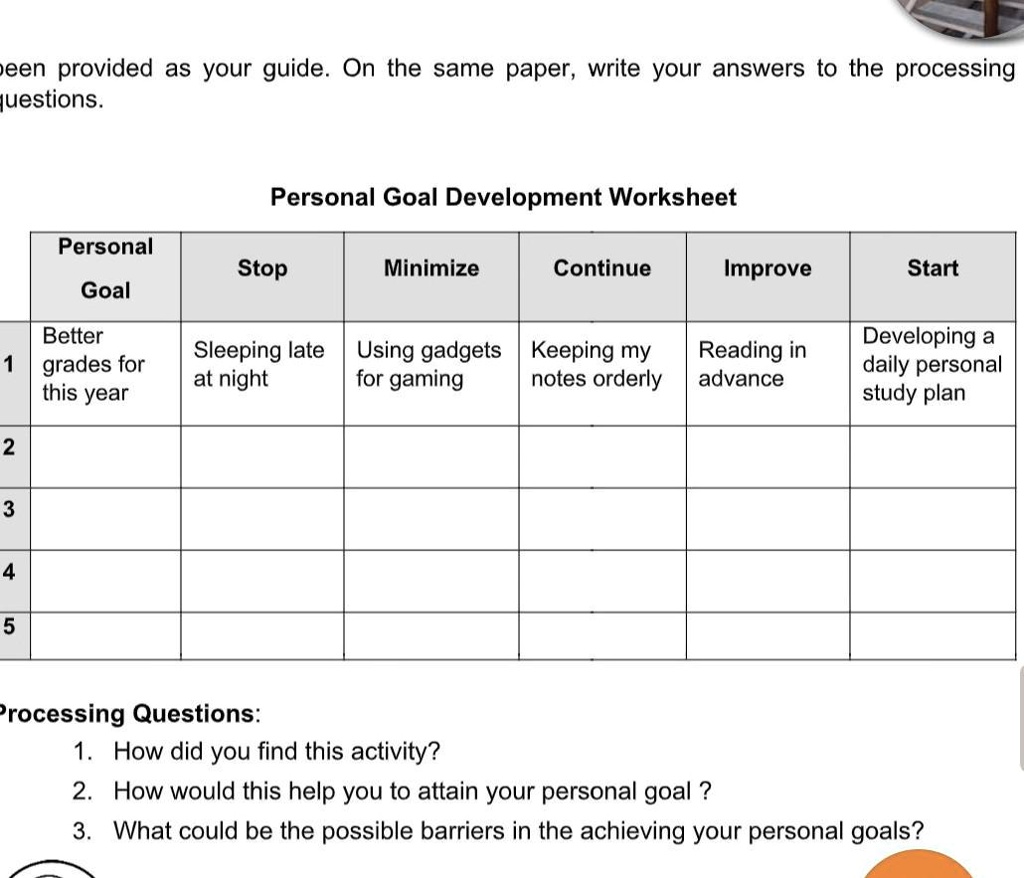“Unlocking Your Fitness Potential: A Comprehensive Guide to Achieving Your Health Goals
Related Articles Unlocking Your Fitness Potential: A Comprehensive Guide to Achieving Your Health Goals
- Bold Evening Glam: A Guide To Making A Statement
- Chic Fashion: A Timeless Style Guide
- Fashion Week: A Kaleidoscope Of Ideas
- Chic OOTD: Mastering Effortless Elegance In Your Everyday Style
- Cute Makeup Hacks That Will Make You Look And Feel Amazing
Introduction
With great enthusiasm, we’re diving into an engaging topic related to Unlocking Your Fitness Potential: A Comprehensive Guide to Achieving Your Health Goals. Let’s weave together valuable insights and fresh perspectives to bring a new dimension to your understanding.
Table of Content
Unlocking Your Fitness Potential: A Comprehensive Guide to Achieving Your Health Goals

Fitness is a journey, not a destination. It’s a lifelong commitment to improving your physical and mental well-being, and it’s a journey that can be incredibly rewarding. However, navigating the world of fitness can feel overwhelming, with countless conflicting pieces of advice and a dizzying array of workout routines and diet plans. This comprehensive guide aims to cut through the noise, providing practical, evidence-based tips to help you achieve your fitness goals, regardless of your experience level.
I. Setting Realistic and Achievable Goals:
Before you even think about hitting the gym or starting a new diet, it’s crucial to set realistic and achievable goals. Many people make the mistake of setting overly ambitious goals, leading to frustration and eventual abandonment of their fitness journey. Instead, focus on small, incremental changes that you can consistently maintain.
- Start Small: Don’t try to overhaul your entire lifestyle overnight. Begin with one or two manageable changes, such as incorporating a 30-minute walk into your daily routine or swapping sugary drinks for water. Once these become habits, you can gradually add more challenging goals.
- Specificity is Key: Vague goals like "get in shape" are unhelpful. Instead, set specific, measurable, achievable, relevant, and time-bound (SMART) goals. For example, "walk for 30 minutes, three times a week, for the next month" is a SMART goal.
- Focus on Progress, Not Perfection: There will be days when you miss a workout or indulge in unhealthy foods. Don’t beat yourself up about it. Acknowledge it, learn from it, and get back on track. Consistency is more important than perfection.
- Celebrate Milestones: Acknowledge and celebrate your achievements, no matter how small. This positive reinforcement will help you stay motivated and committed to your fitness journey.
II. Crafting Your Workout Plan:

A well-structured workout plan is essential for achieving your fitness goals. It should incorporate a variety of exercises to target different muscle groups and improve your overall fitness level.
- Find Activities You Enjoy: The most effective workout plan is one you’ll actually stick to. Experiment with different activities until you find ones you genuinely enjoy. Whether it’s running, swimming, weightlifting, yoga, or dancing, finding something you love will make the process more sustainable.
- Balance Your Workouts: Incorporate a mix of cardio, strength training, and flexibility exercises into your routine. Cardio improves cardiovascular health and burns calories, strength training builds muscle mass and increases metabolism, and flexibility exercises improve range of motion and prevent injuries.
- Progressive Overload: Gradually increase the intensity, duration, or frequency of your workouts over time. This challenges your body and prevents plateaus. This could mean adding weight, increasing reps, or extending the duration of your workouts.
- Listen to Your Body: Pay attention to your body’s signals. Rest when you need to, and don’t push yourself too hard, especially when starting out. Ignoring pain can lead to injuries.
- Incorporate Rest Days: Rest is crucial for muscle recovery and growth. Schedule rest days into your workout plan to allow your body to repair and rebuild.

III. Fueling Your Body for Fitness:
Nutrition plays a critical role in achieving your fitness goals. A balanced diet provides the energy and nutrients your body needs to perform at its best.

- Prioritize Whole Foods: Focus on consuming whole, unprocessed foods such as fruits, vegetables, whole grains, lean proteins, and healthy fats. These foods provide essential nutrients and fiber, keeping you feeling full and satisfied.
- Control Portion Sizes: Be mindful of your portion sizes. Even healthy foods can contribute to weight gain if consumed in excess.
- Hydration is Key: Drink plenty of water throughout the day. Water is essential for bodily functions, including temperature regulation and nutrient transport.
- Limit Processed Foods, Sugary Drinks, and Unhealthy Fats: These foods are often high in calories and low in nutrients, contributing to weight gain and other health problems.
- Consider Consulting a Nutritionist: If you’re struggling to create a balanced diet, consider consulting a registered dietitian or nutritionist. They can help you create a personalized meal plan that meets your specific needs and goals.
IV. The Importance of Sleep and Stress Management:
Sleep and stress management are often overlooked aspects of fitness, yet they are crucial for optimal performance and recovery.
- Prioritize Sleep: Aim for 7-9 hours of quality sleep per night. Sleep allows your body to repair and rebuild muscle tissue, and it also plays a crucial role in hormone regulation and overall well-being.
- Manage Stress: Chronic stress can negatively impact your fitness goals by increasing cortisol levels, which can lead to weight gain and muscle loss. Find healthy ways to manage stress, such as exercise, yoga, meditation, or spending time in nature.
V. Tracking Your Progress and Making Adjustments:
Tracking your progress is essential for staying motivated and making adjustments to your fitness plan as needed.
- Keep a Fitness Journal: Record your workouts, including the exercises you performed, the weight you lifted, the distance you ran, and how you felt. This will help you track your progress and identify areas for improvement.
- Monitor Your Weight and Body Measurements: Regularly monitor your weight and body measurements to track your progress. However, remember that weight is just one indicator of fitness, and it’s important to focus on overall health and well-being.
- Listen to Your Body: Pay attention to how your body feels. If you’re experiencing pain or fatigue, adjust your workout plan accordingly.
- Be Patient and Persistent: Achieving your fitness goals takes time and effort. Don’t get discouraged if you don’t see results immediately. Stay consistent, and you will eventually reach your goals.
VI. Seeking Professional Guidance:
While this guide provides valuable tips, seeking professional guidance can significantly enhance your fitness journey.
- Certified Personal Trainer: A certified personal trainer can create a customized workout plan tailored to your specific needs and goals. They can also provide guidance on proper form and technique, reducing the risk of injury.
- Registered Dietitian or Nutritionist: A registered dietitian or nutritionist can help you create a balanced meal plan that meets your specific nutritional needs.
- Physical Therapist: If you experience any injuries, a physical therapist can help you recover and prevent future injuries.
VII. The Mental Game of Fitness:
Fitness is as much a mental game as it is a physical one. Maintaining motivation and overcoming challenges requires mental strength and resilience.
- Find a Workout Buddy: Working out with a friend or family member can provide motivation and support.
- Reward Yourself (Healthily): Reward yourself for reaching milestones, but choose healthy rewards, such as a new workout outfit or a massage.
- Focus on the Positive: Focus on the positive aspects of your fitness journey, such as increased energy levels, improved mood, and better sleep.
- Don’t Compare Yourself to Others: Everyone’s fitness journey is unique. Focus on your own progress and don’t compare yourself to others.
By following these tips and staying committed to your fitness journey, you can unlock your fitness potential and achieve your health goals. Remember that consistency, patience, and a positive attitude are key to long-term success. Embrace the process, celebrate your achievements, and enjoy the journey towards a healthier, happier you.

Closing
With that, we hope this article has provided valuable insights into Unlocking Your Fitness Potential: A Comprehensive Guide to Achieving Your Health Goals. Thank you for taking the time to read this article. See you in our next article!


